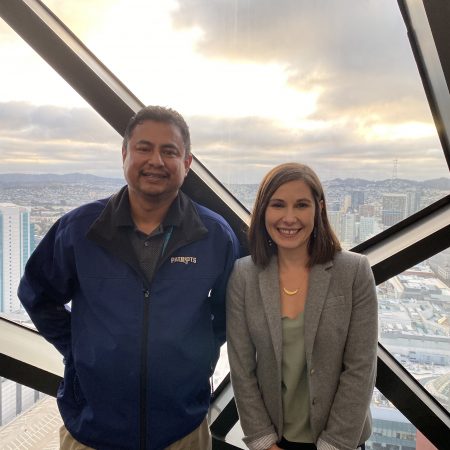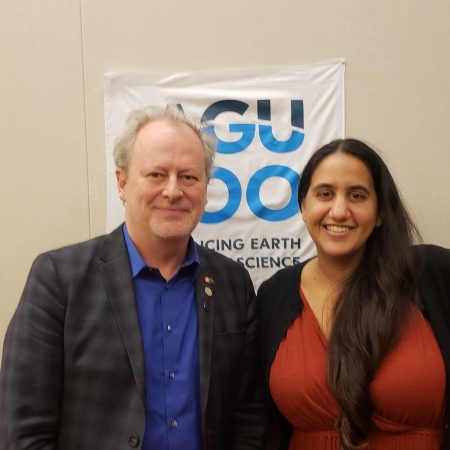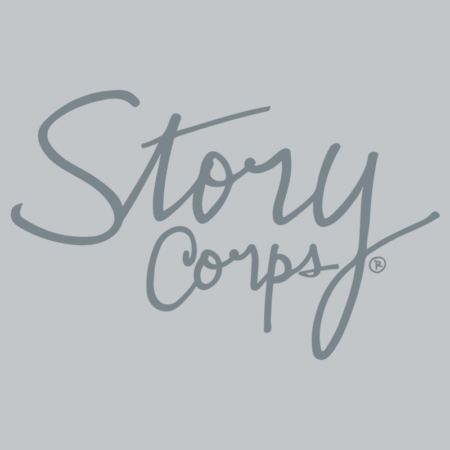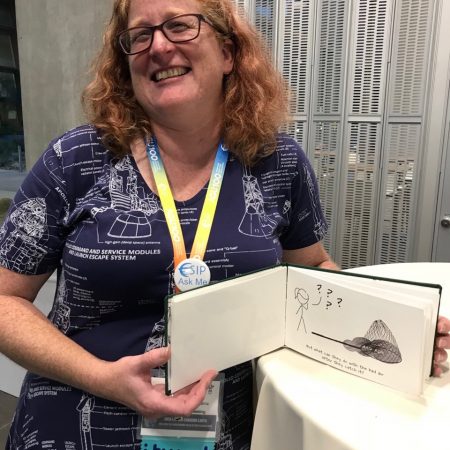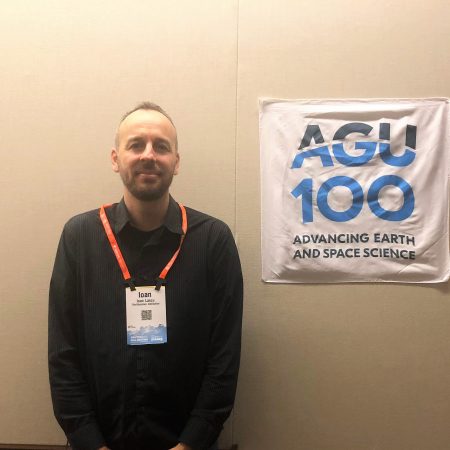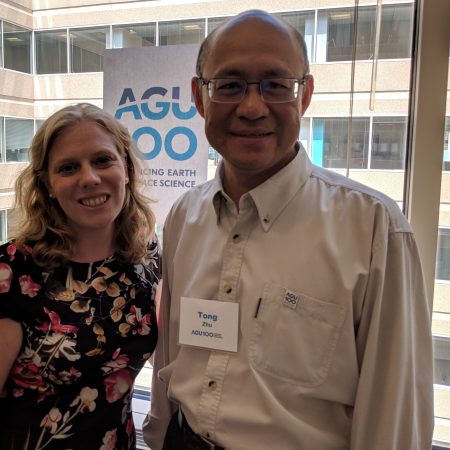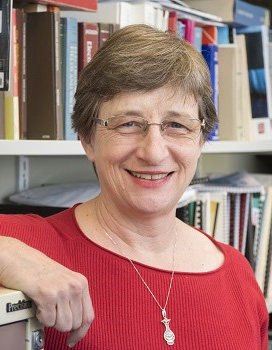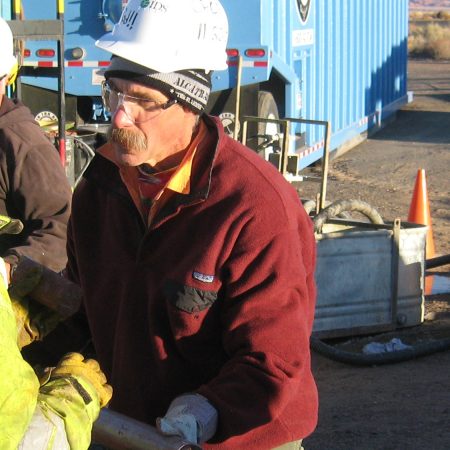Refine
Date Range Clear
Recorded by Clear
Keywords Clear
- urban water systems 56
- Collaboration 56
- African American community 56
- #AGU100 22
- #AGU 21
- Community 10
- NASA 8
- 365 more
Partnerships Clear
Organizations Clear
- American Geophysical Union 10
- American Red Cross 1
- Elementary school "Oktoih" 1
- Elizabeth Youth Theater Ensemble 1
- ELTAM 1
- 11 more
Places Clear
Languages Clear
Initiatives Clear
[Recorded Tuesday, March 19, 2024] UVA students Bea Webster (21) from Vienna, VA and Evan Small (21) from Fairfield, CT recorded a One Small Step conversation as part of their Lead From Anywhere course. Evan & Bea explored their political...
Jack Kaye, associate director for research at NASA's Earth Science Division, discuss his origins as a chemist and earth scientist, and how he was recruited to Goddard to be a chemist among meteorologists. "My boss would advertise me as his...
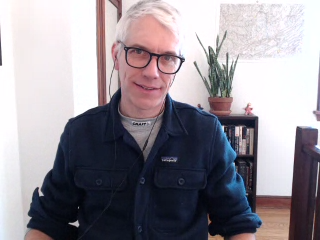
Colleagues Jonathan Green (50) and Kaye Houlihan (59) share what made them want to become educators, how the COVID-19 pandemic has affected their work, and their reflections on utilizing the continuous improvement model at Fort Hamilton High School.
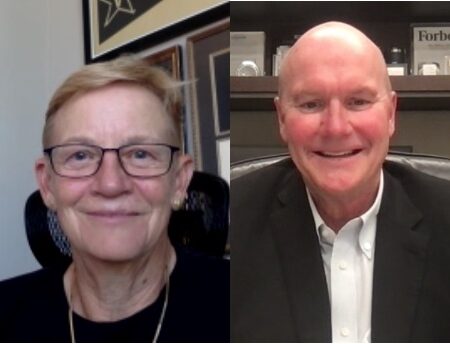
Vice Admiral Nora Tyson (64) and Mr. Bruce Evans (62) discuss their experience serving on Vanderbilt University's Board of Trust during the COVID-19 crisis.
Why do people feel they way they do about issues? Why do lawmakers and policy leaders seemingly act against their better interests? And how can information be developed in a way that leads not just to greater understanding, but to...
Linda Geiser and Peter Nelson tell their own stories and reflect on the impact they’ve had on each other lives. They’re both currently with the US Forest Service but first met when Linda hired Peter after he finished university to...
Sarah Vines and Robert Allen once drove twenty hours to see a spaceship launch. Now, Sarah and Robert are married, post-doctoral students working in the laboratories of Johns Hopkins University. Sarah researches how magnetic fields form, and what earth’s magnetic...
Amber Soja’s career is on fire. The resident at NASA’s Langley Research Center studies fire regimes and how they are being affected by climate change. “Every fire season is worse,” she says, adding that the changing fire regime is proof...
Shelby Hurst grew up in northern Michigan where she spent plenty of time poking at and asking questions about the rocks in her grandparents’ backyard, which eventually led her to a PhD in geochemistry. She discusses the importance of women...
Dr. Amber McCullum is an Applied Research Scientist for the Bay Area Environmental Research Institute (BAERI) at NASA Ames who is currently co-developing a drought tool with the Navajo Nation Department of Water Resources that includes remote sensing and ground-based...
In the mid-2000s, a small group of leaders at AGU, including Peter Fox, Rensselaer Polytechnic Institute, saw an opportunity to shape or reshape how geoscientists work together under a new cross-cutting discipline. As a result, “Earth and space Science Informatics”...
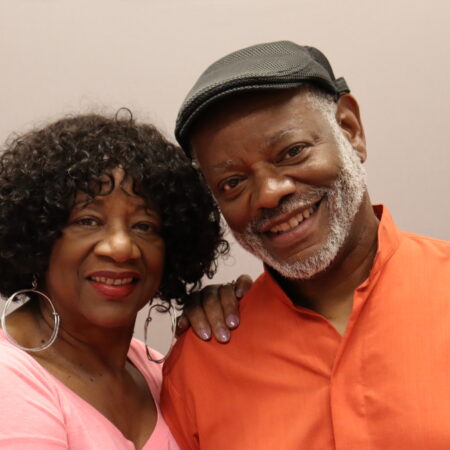
Siblings Betty Brown-Chappell (76) and Ben Brown (68) share memories from growing up on their family farm in the 1950s and 1960s outside of Bangor, Michigan. The two reflect on the collaboration between Black farmers in their community and the...
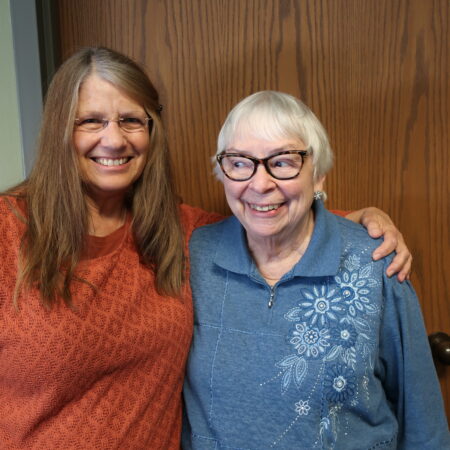
Lynn Preston (71) interviews her friend Patricia Cosgrove (87) about Patricia's career as a teacher, her work as a teacher's advocate, and her advice for future teachers.
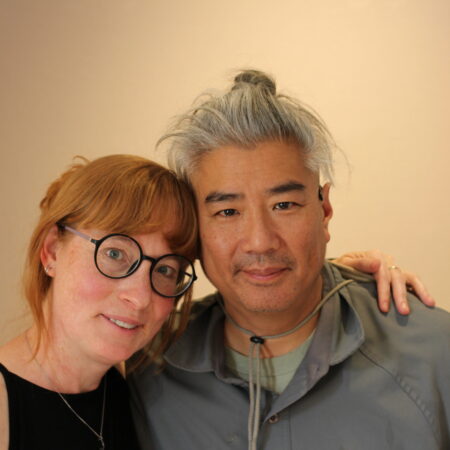
Natalie Johnson (47) interviews her friend Mark Wong (55) about his work as a potter and his involvement in the local art community.
Denise Hills, Director in Geological Survey of Alabama and AGU leader shares stories of her collaborative experiences and how it has shaped her career. She discusses the significance of the growth of science and the importance of communicating science to...
Ioan Lascu, research geologist at the Smithsonian Museum of Natural History, shares stories of his work studying minerals and rock magnetism. What do bacteria affect magnetism? What can we learn from stalagmites and stalactites? Why has there been in a...
Tong Zhu atmospheric chemist and university professor shares his experiences studying air pollution and its impacts on human health. Reflecting on how past discoveries influence solutions and how those solutions impact government policy. He shares stories about his work for...

Danielle Patterson Varner (42) interviews her colleague Paul Pierce (68) about his career in the theater industry. They also discuss the importance of community theater as a space for storytelling and identity-building, as well as the legacy of kindness Paul...

Katie Spellman (36) speaks with her mentor and collaborator, Christa Mulder (no age given), about their relationship, their pathways in science, what makes for a good mentor and collaborator, and what they have learned from each other.

Coworkers Esther Louis (37), Cortes Lewis James (50), and Yakesha Llewellyn (32) talk about their work as doulas and the importance of interrupting the Black maternal health crisis.
Eager to get out of the lab, Martha Savage spent the year immediately following her undergraduate graduation at the Amundsen-Scott South Pole Station where she worked as a cosmic ray observer. In this position, Dr. Savage, who is now a...
How did Biogeoscience become a recognized field of study, with its own journal and sections at AGU? What obstacles did its organizers have to overcome in order to make it a viable field and a welcome presence at AGU? In...
Erin Robinson is the Executive Director of the Earth Science Information Partners (ESIP). She knew from early on that she was interested in science and her field of remote sensing, from good science teachers in middle and high school to...
John Geismann, professor of geosciences at the University of Texas Dallas, shares his discovery into the science field and favorite aspects of working with students. He discusses the critical point we are in society and need for the global community...
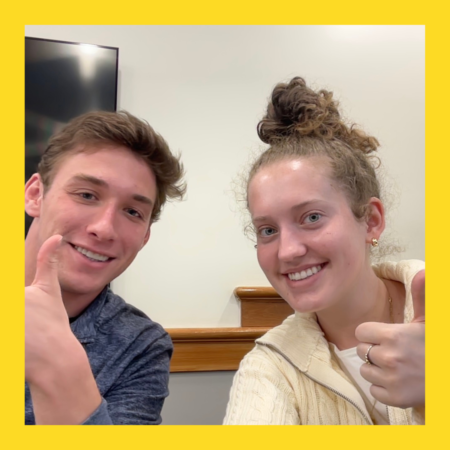


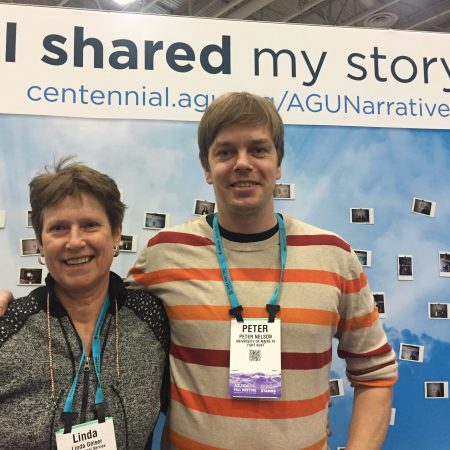
!["[Science] lets us imagine things we hadn't thought possible." an interview with Sarah Vines and Robert Allen](https://archive.storycorps.org/uploads/2019/07/Sarah-Vines-w-Robert-Allen.jpg)

![“I enjoy knowing that a lot of people do care about [the climate] and they care to learn about it.” an interview with Shelby Hurst](https://archive.storycorps.org/uploads/2019/07/Shelby-Hurst-crop-450x450.png)
